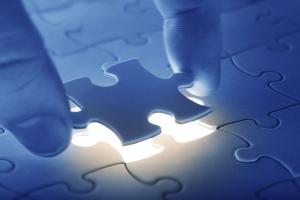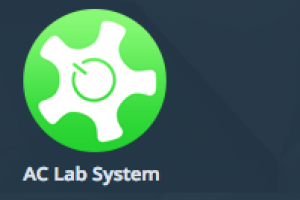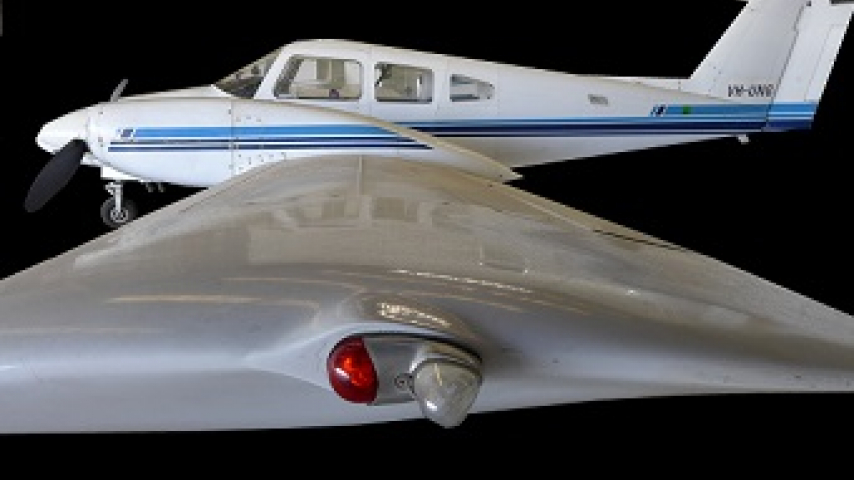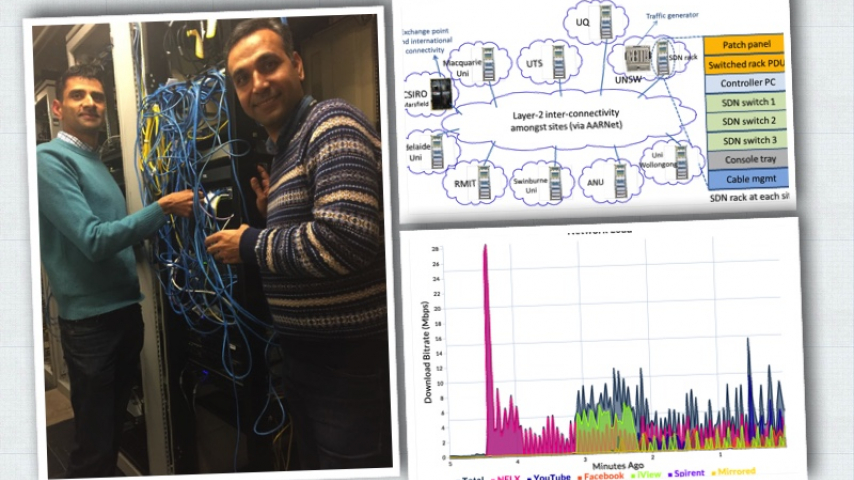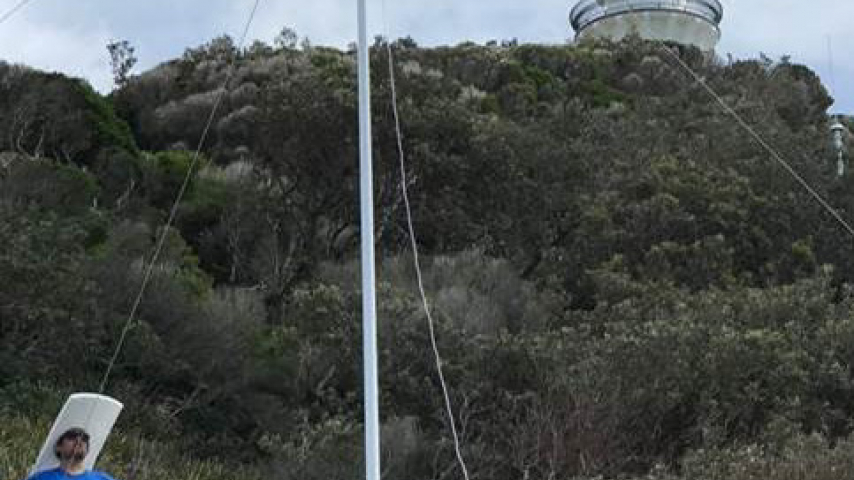Network Labs are an initiative under the UNSW Research Infrastructure Scheme and to date 13 Network Labs have been funded. These Labs, their capabilities and contact details are listed below.
For general questions about Network Labs or the Research Infrastructure Scheme, please contact pvcresin@unsw.edu.au.
The Recombinant Products Facility has been set up to help researchers fast track their projects at any stage of their protein production pipeline (from a protein production by fermentation to its purification and characterisation). Thanks to their extensive experience, the RPF staff can assist you in designing your project and train you on any equipment listed below.
Capabilities and Services Offered |
|
Protein expression by fermentation: Upstream processing:
Sample harvest and conditioning: Midstream processing:
Protein purification: Downstream processing:
Protein characterisation:
|
Training Offered |
|
Training can be provided for all of the pieces of equipment mentioned above. |
Costs |
|
Costs start from $50 per day or $1,000 for an annual subscription. More information is available here on the RPF website. |
Access |
|
Access to the UNSW Recombinant Products Facility is by one of two mechanisms and is for the most part, restricted to UNSW staff and students (or affiliated Institutes). Under the first mechanism, we can assist you in designing your project and train you at different stages of the protein production and purification pipeline. The training services provided by RPF may range from a fully assisted technical support and training for the infrequent user to an equipment resource for the experienced user. You will be expected to provide all consumables, buffers and columns if required and will need to also undergo a full lab induction. Once trained, you can access to the online booking system of the facility. The second mechanism is where RPF staff provides a full service in terms of performing fermentation, mid-stream processing and/or downstream processing. This will incur charges (contact the Director for information regarding pricing). |
Contact |
|
Network Lab Manager: Hélène Lebhar, h.lebhar@unsw.edu.au Network Lab Director: Dr. Chris Marquis, c.marquis@unsw.edu.au Website: http://www.proteins.unsw.edu.au/ |
The Molecular Surface Interaction Network Lab houses equipment that analyse of how materials, biological molecules and cells interact on the nanoscale including protein-protein/peptide/antibody/carbohydrate, protein-material, material-cell interactions.
Instruments and Capability
-
Surface plasmon resonance is an optical technique that enables label-free real time detection of protein/peptide/antibody interactions and is widely used in industry for drug and antibody development. This instrument provides kinetics, stoichiometry and affinity measures. The systems each have 4 channels and are capable of auto-sampling allowing multiplexing of experiments for high throughput. The Biacore T200 is optimised for a broad range of molecular interactions while the Biacore S200 is specialised for small molecule interactions.
-
Quartz crystal microbalance with dissipation monitoring is a gravimetric technique that allows label-free, real time detection of interactions between surface immobilised materials, molecules or cells and these same entities in solution providing kinetics, stoichiometry and viscoelastic measurements of the binding events with ng/cm2 resolution. The QSense Analyzer system has 4 channels allowing multiplexing of experiments for high throughput and is equipped with the electrochemical module allowing simultaneous electrochemical impedance spectroscopy measurements and a cell module enabling simultaneous microscopy imaging.
-
The BLItz interferometry-based biosensor enables label-free real-time analysis of protein interactions in a minimum sample volume of 4 μL and is particularly suited to the determination of a particular protein in a crude or purified sample, analysis of binding kinetics, protein/antibody quantitation and rapid immunoassay development. This is a single channel, manually operated instrument and ideally suited to simple and low volume experiments.
The network lab currently supports users through:
- Advice on instrument selection
- Advice on experimental design
- Training to independently use the instruments
- Training to analyse, model, present and interpret data
- Assistance with data analysis, presentation and interpretation for publication
- Option for staff operated data acquisition, analysis and interpretation
Location and access
The Molecular Surface Interaction Network Lab is located in Building E26, level 2, room 2002 within the Bioanalytical Mass Spectrometry facility of the Mark Wainwright Analytical Centre.
Users are inducted into the Network Lab and provided with swipe-card access (Mon-Fri, 8am – 6pm) to the facility and access to the ACLS online instrument booking system .Once instrument training is complete. Experienced users are able to apply for continuous instrument and facility access.
Fees
Once users are trained to independently operate the instruments, research groups are charged $30 per hour capped at $600 per year for user operated access to the instruments. This fee supports the servicing requirements of the instruments, buffers to operate and maintain the instruments as well as the purchase of routinely used chips for users to trial new experiments.
Network Lab staff operation of the instruments, data analysis and interpretation are each charged at $80 per hour while automated operation of the instrument after set up by staff (Biacore only) is charged at $20 per hour.
Prospective users
Prospective users are invited to contact the Network Lab to discuss their experimental requirements and arrange instrument training.
Contact us
Network Lab Manager: Ms Ha Na Kim, h.m.kim@unsw.edu.au
Network Lab Director: A/Prof. Megan Lord, m.lord@unsw.edu.au
The Tyree X-ray CT Network Lab houses a helical micro-CT to address tomographic imaging needs (3D and 4D) for quantitative analysis in many engineering and science disciplines. The micro-CT is purpose-built for research with open access (lead- lined room) and lends itself to adapting to complex needs, e.g. the attachment of auxiliary equipment like pressure or flow cells.
Capabilities and Services Offered |
|
The micro-CT has a 3072x3072 flatbed detector in a custom-build enclosure with outstanding temperature stability providing exceptionally clear images. The facility provides 3D volumes of X-ray density with typical tomogram sizes of 3000x3000x6000 voxels. Multiple images of the same sample under different conditions can be recorded and exactly registered, allowing the collection of differential tomograms using suitable sample holders. The Network Lab offers:
The CT preparation lab includes:
Services accessible only to subscription users (collaborative research):
|
Training Offered |
|
Training provided to:
Training available to subscription users (research collaboration) to:
|
Costs |
|
Hourly instrument charges and subscription charges. Please contact the Network Lab for details. |
Access |
|
Contact the network laboratory to arrange a meeting to discuss your project and to see how the lab can assist you. Depending on the level of subscription you have access to different capabilities of the lab. Independent operation of the facility is not permitted due to the sensitivity/fragility of the custom-build instrument as well as training/health and safety requirements (e.g. working with X-rays). A separate preparation laboratory on the same floor level is accessible to users of the facility. Relevant inductions and training will be provided. |
Contact |
|
Network Lab Manager: TyreeXray@unsw.edu.au, +61 (2) 9385 5658 Network Lab Director: Professor Christoph Arns, c.arns@unsw.edu.au, +61 (2) 9385 5554 |
The Airborne Remote Sensing Facility operates a twin-engined Piper PA44 for airborne observations.
Capabilities and Services Offered |
|
The aeroplane has an approved observation port and instrument rack, and is piloted by a UNSW Aviation pilot. Configuration and running of equipment is undertaken by Peter Mumford, the School’s Airborne Scientific Officer and technical specialist in data acquisition and analyses. Routine: Airborne Lidar Surveys: RIEGL VQ-480i. Standard Output: LAS files Scientific GPS/IMU: Novatel SPAN AG62 Aerial Photography: Canon EOS5D 22 MP Camera In Development: Hyperspectral Camera: Brandywine CHAI 2048 to be run concurrently with the Lidar, or independently thereof Other User Sensors: May be flown subject to weight, balance, size, power requirements etc
Costings: Quotes are available from Jason Middleton Technical Feasibility: Should be discussed with Peter Mumford |
Training Offered |
|
Training will only be required if the user scientific team needs to fly in the aircraft to acquire data. In this case, there will be technical training concerning the scientific and aircraft systems as well as training in flying safety. |
Costs |
|
Flight and salary costings: Costings depend on the flight time from/to Bankstown Airport and the survey site, as well as the flight time over the survey site. Direct survey costs also include costs for personnel (pilot and scientific officer), equipment maintenance, and for data analyses. UNSW overheads apply for non-UNSW users as assessed by the UNSW Research Office. |
Access |
|
Users may be able to operate their own special packages in flight, after training in basic aeroplane systems, and flight operation. The aeroplane pilot will be nominated and approved by the UNSW Aviation Flying Operations Unit Head of Operations. To access the facility, an initial discussion should be held with Jason Middleton and Peter Mumford, following which a technical survey proposal should be prepared (specifying equipment to be flown, survey requirements, and data analyses). The proposal needs to be accepted and approved by the facility leader after discussion with the Aviation technical specialist, and by the UNSW Head of Operations. |
Contact |
|
Network Lab Airborne Scientific Officer: Peter Mumford, p.mumford@unsw.edu.au, +61 (2) 9793 3072 Network Lab Director: Prof Brett Molesworth, b.molesworth@unsw.edu.au, +61 406 624 341 Website: http://www.aviation.unsw.edu.au/research/airborne.html |
The UNSW Business Experimental Research laboratory (BizLab) is a multi-disciplinary research facility across the schools of the UNSW Business School, which is available for research use by all faculty and HDR students, and their collaborators. BizLab hosts a range of human research experiments examining decision making in business and economics.
Capabilities and Services Offered |
|
The lab is a research-only facility that contains 48 fixed touchscreen workstations, a 20 person negotiation table with a corresponding number of laptops and movable dividers, and a private observation area. The lab hosts biometric equipment (including skin-conductance sensors and heart-rate monitors); eye-tracking technology; and virtual reality and augmented reality glasses. |
Training Offered |
|
The BizLab manager will explain lab guidelines and processes to new users. IT support for software/hardware/network questions is available from the BizLab’s IT advisor. Programming for specialized applications is available by the BizLab’s programmer, upon completion of an initial programming request form (available from the lab director). |
Costs |
|
General use of the BizLab is free. Researchers are responsible for reimbursing study participants for their time. Hourly charges may apply for programming support; please contact the lab director for further information. |
Access |
|
Contact the lab manager to discuss specific requirements for your project. All BizLab studies require UNSW human research ethics approval, and cannot commence prior to approval being granted. |
Contact |
|
Network Lab Manager: Ms Kelly Wang, bizlab@unsw.edu.au Network Lab Director: Assoc. Prof. Nitika Garg, n.garg@unsw.edu.au Website: http://bizlab.unsw.edu.au |
The involvement of community perspectives in research is important to achieve better process and outcomes. The Community Reference Panel is a collection of individuals who are available to comment on various aspects of research (such as research questions and approaches, materials and methods, surveys, interview schedules, recruitment plans, findings and reports).
Capabilities and Services Offered |
|
The panel members include people who live with hepatitis C or HIV, those with experience of prison, injecting drug use or sex work and Aboriginal people with these experiences. The Panel Manager can consult with researchers regarding what type of consultation will meet their needs and then undertake that consultation to produce a report for the researcher. |
Training Offered |
|
None required. |
Costs |
|
The cost of consultation ($40 per panel member) needs to be provided by the researcher. The cost of the Panel Manager to undertake consultations is covered by the Network Lab. |
Access |
|
The researcher is required to specify their needs to ensure that the Panel Manager is fully briefed and can provide feedback that is most relevant and useful |
Contact |
|
Network Lab Manager: crp@unsw.edu.au, +61 415 541 367 Network Lab Director: Professor Carla Treloar, c.treloar@unsw.edu.au, +61 (2) 9385 6959 Website: https://csrh.arts.unsw.edu.au/about-us/centre/community-reference-panel/ |
The archival collections in Australian literature, theatre, film and television constitute the great majority of the UNSW Canberra Academy Library’s Special Collections. The project will improve the accessibility of material by introducing more consistent access controls and conditions across the collections. It will also improve the profile and visibility of the collections through targeted digitisation and website optimisation.
Capabilities and Services Offered |
|
The archival materials include writers’ manuscripts, screen and script drafts, audiovisual recordings, bodies of correspondence, archival records of the publishing, film and television industries, and literary and historical ephemera. They reflect long-standing research strength in the field of Australian literature at UNSW and strategic collecting decisions through earlier decades, which sought to establish a distinctive role for the Academy Library in the GLAM sector. In so far as these collections are highly specialized, focused on Australian writers and cultural producers of the contemporary era, they are recognized as unique and of international importance. The materials include 28 key collections of significance, other collections of acute current interest, and further collections with notable research potential and interest. The 28 first-ranked collections include the papers of Robert Adamson, Graeme Blundell, Michael Dransfield, Bruce Dawe, Bob Ellis and Anne Brooksbank, Nick Enright, John Forbes, Mary Gilmore, Max Gillies, Dorothy Green, Frank Hardy, Laurie Hergenhan, Dorothy Hewett, Kate Llewelyn, Stephen Knight, Alex Miller, Geoff Page, Dorothy Porter, Jennifer Rankin, John Romeril, John A. Scott, Vivian Smith, Tom Thompson, Vicki Viidikas, and Patrick White. Further information and items listings are available on the Special Collections website. |
Training Offered |
|
Guidelines on viewing and handling items in the collections can be accessed on the Special Collections website. |
Costs |
|
The collections are available to all users at no cost. The John Howard Reading Room Terms of Use stipulate that non-UNSW users of the collections must register with the library and receive a library card, upon which access is provided at no cost. If clients are unable to visit the Reading Room, copies can be requested through the AskUs Special Collections Service. The charging structure for this service is available on inquiry. |
Access |
|
Access to the collections is currently available to all UNSW and external researchers by appointment in the Academy Library John Howard Reading Room at UNSW Canberra or through online requests and digitisations where possible. Online Finding Aids are accessible here. |
Contact |
|
Requests for access to materials are processed through the Academy Library Enquiry process. Collections Curator: Rose Holley, r.holley@adfa.edu.au, +61 (2) 5114 5667. Network Lab Director: Professor Nicole Moore, n.moore@adfa.edu.au, +61 (2) 5114 5231. Website: https://www.unsw.adfa.edu.au/library/special-collections |
Software Defined Network Testbed is a wide area network built using ARC-LIEF 2015 grant funds and is spread across ten institutions across Australia.
Capabilities and Services Offered |
|
This testbed facilitates research in three broad areas, namely Multimedia Service Quality, Network Design and Optimization, Security. |
Training Offered |
|
We periodically conduct workshops on SDN using the infrastructure to various partners like universities and companies. Details of the most recent workshop held in Nov 2016 can be seen at: http://www.anzsdn.net/index.php/event/sdn-hands-on-training-and-certification/. |
Costs |
|
The testbed is intended to provide a platform for build, testing, and demonstrating prototypes and showcase them to industry partners such as Internet Service Providers and Government Agencies. Direct cost of accessing and using the testbed can be negotiated; however at the moment we rely on sponsorships (in cash and in-kind) to help with the cost recovery. |
Access |
|
Access to the testbed will be granted upon considering the requirement and availability. There will be some induction and training on how to use the network, after which user(s) should be able to access the testbed. |
Contact |
|
Network Lab Managers: Hassan Habibi Gharakheili, h.habibi@unsw.edu.au, +61 423 819 569 or Veera Datla, v.datla@unsw.edu.au, +61 449 656 426 Network Lab Director: Professor Vijay Sivaraman, vijay@unsw.edu.au, +61 (2) 9385 6577 |
The Gleeble 3500 is one of the most powerful and versatile materials processing facilities of its kind in the world, for investigating the thermal and mechanical behaviour of metals, alloys and metal-based composites (conducting materials).
Capabilities and Services Offered |
|
The Gleeble® facility housed in this Laboratory was funded by the Australian Research Council (ARC)-LIEF scheme, with additional support from Universities of New South Wales, Sydney, Queensland, Monash and Deakin. A wide range of materials and metallurgical experiments and simulations are possible in the facility, including:
Further details about the general capabilities of the Gleeble facility and some interesting case studies are available on the manufacturer’s official website: www.gleeble.com Due to the multi-functionality of the Gleeble facility, which is capable of carrying out numerous types of tests, our services range from a complete training program for both internal and external users, thereby enabling them to be independent use of the machine, through to full technical support. The latter requires highly trained staff to carry out a specific testing program, unless an extended program of work requires individual training. We also provide advice for costing of experiments for grant applications. |
Training Offered |
|
(1) Laboratory Induction and understanding WHS requirements for the laboratory and the equipment therein. (2) On-site training for a specific test, including sample preparation, basic principles of machine operation, handling the processing and post-processing software. |
Costs |
|
There are several categories of user, so an appropriate hourly charge-out rate is based on the following: (1) ARC-partner universities. Each stakeholder (UNSW/UQ/Deakin/Monash/USYD) has a share of equity in the Gleeble facility and, accordingly, collaborators in these universities are allocated a certain number of days per annum. The universities also have different testing and training requirements, such that users may undergo appropriate training that will enable them to carry out independent testing through to the need for full technical support. (2) Non-core-partner universities. These researchers will require full technical support to carry out tests, unless an extended program of work requires individual training. (3) Government research organisations and industry. These users will require full technical support to carry out tests, unless an extended program of work requires individual training. The specific rates for each of these categories and for a given test are available from the Laboratory Manager. |
Access |
|
Contact the Laboratory Manager to arrange a meeting to discuss project details and research goals. Inductions and safety training will be scheduled following the meeting. (1) ARC-partner universities: For long term projects, users may be trained to operate the machine following inductions and WHS requirements. Technical support is provided. (2) Non-core-partner universities (external users): Access will be provided to the labs, however, equipment operation and data acquisition will be performed by technical staff. Online booking system in place for all users with access provided, following completion of inductions and fulfilment of WHS requirements |
Contact |
|
Network Lab Manager: Dr David Miskovic, d.miskovic@unsw.edu.au, +61 (2) 9385 0762 Network Lab Director: Professor Michael Ferry, m.ferry@unsw.edu.au. |
ERICA is a package of scripts and software applications that provides a secure cloud (Amazon Web Services, AWS) computing environment for research. It was specifically designed to provide an appropriate level of security for research that uses sensitive microdata (for example health records) while taking advantage of the flexibility, scalability and cost-effectiveness of the AWS cloud computing platform.
Capabilities and Services Offered
ERICA has four main components:
-
Project workspaces, comprising customisable network architecture and storage within a security perimeter.
-
Virtual desktops, through which researchers on each project access and analyse data.
-
Browser-based file ingress and egress portals (eHub and iHub), which capture a complete audit trail, including copies of all files passing through the portals.
-
System administration application, which allows new project workspaces, to be “spun up”, archived, suspended or deleted at project conclusion.
All data are stored on AWS facilities housed in three geographically separate but interconnected high-level, secure data centres in Sydney, with strict access controls and 24-hour security surveillance. No data leaves Australia.
ERICA infrastructure is itself virtual, and additional instances of ERICA for other purposes can be established if required.
ERICA Architecture
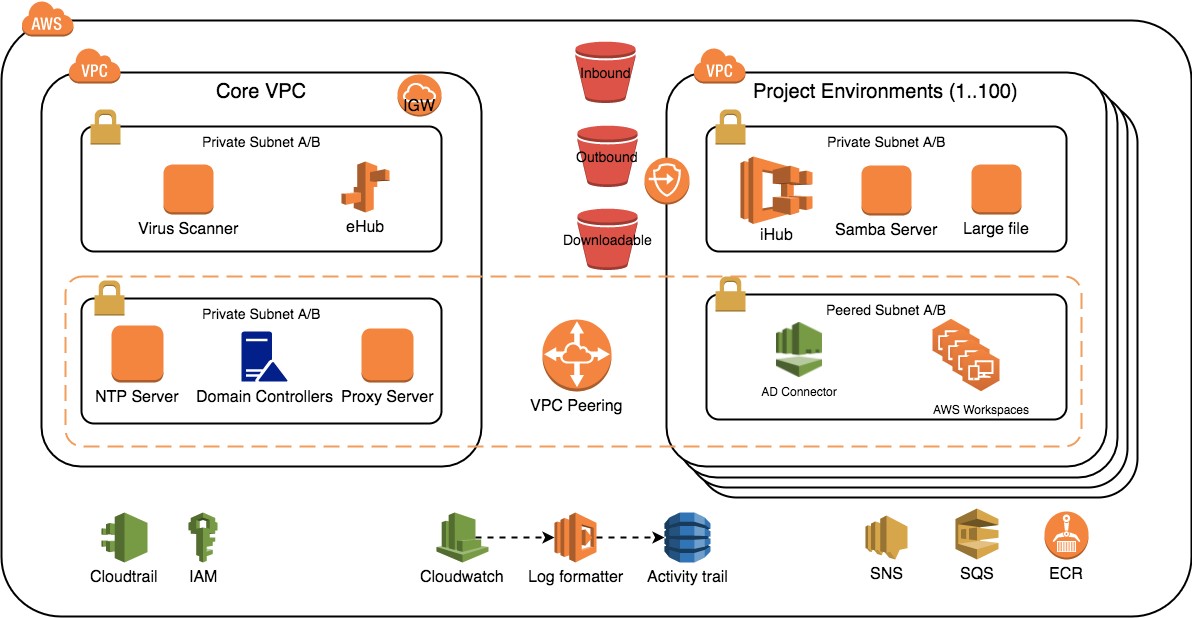
Training Offered
All ERICA users must have completed the UNSW Research Integrity training module. All users must also complete an ERICA-specific training module.
Costs
Costs relate to charges for use of AWS products and services and vary according to the configuration chosen. A pricing tool for ERICA is being developed as part of the current cycle of development.
Contact
Professor Louisa Jorm (l.jorm@unsw.edu.au)
UNSW Network Lab for Oceanographic Collaboration (UNLOC): connecting ecologists and engineers with real-time oceanography.
Capabilities and Services Offered
UNLOC will provide data products and interpretation in 4 stages:
-
Facilitate urgent operational needs and maintenance of the antennae, and support ACORN in providing raw data to the Australian Ocean Data Network (AODN);
-
Develop an API that can be used to ingest the data into web-based applications to display the hourly updates of surface currents;
-
Facilitate satellite, drifter and surface current data from the existing IMOS HF radar facility off Coffs Harbour (between latitude 29-30°S) with the Newcastle Ocean Observing Antennae (31-33°S) for the marine community;
-
Facilitate interdisciplinary collaboration, and actively promote the services of the Coastal Network Lab and IMOS data streams to UNSW scientists.
UNLOC will facilitate access to hourly data and interpretation of ocean surface currents for a key area off eastern Australia (latitude 30-34 degr. S), for a wide variety of marine, climate and meteorological scientists at UNSW. Surface currents will be provided from new high frequency (HF) long-range radars (CODAR) off Port Stephens and short-range radars WeRa off Coffs Harbour .
UNLOC will also facilitate the uptake of data products from the AODN (sea surface temperature, ocean colour, drifters, Argo profiles) and promote greater collaboration between physical and biological scientists at UNSW.
Once the CODAR is commissioned early in 2018, the Network Lab offers assistance specifically with using the surface current data from either OceanCurrent, or the AODN http://thredds.aodn.org.au/thredds/catalog/IMOS/ACORN/gridded_1h-avg-current-map_non-QC/NEWC/catalog.html
Radials will also should be uploaded to the AODN:
http://thredds.aodn.org.au/thredds/catalog/IMOS/ACORN/radial/RHED/catalog.html
http://thredds.aodn.org.au/thredds/catalog/IMOS/ACORN/radial/SEAL/catalog.html
Costs
UNLOC will provide a reasonable level of guidance to facilitate access and analysis of the data products. We are particularly interested in collaborating on scientific analyses using the data. Advanced analysis, without collaboration, may incur additional costs, which will be discussed at the time.
Access
Contact the network laboratory to arrange a meeting to discuss your project and to see how UNLOC can assist you.
Please explore the OceanCurrent website http://oceancurrent.imos.org.au/ and the AODN portal https://portal.aodn.org.au/
Contact
Network Lab Manager: Dr Matt Archer (Matt.Archer@unsw.edu.au)
or Dr Jason Everett (Jason.Everett@unsw.edu.au)
Network Lab Director: Prof. Iain Suthers (I.Suthers@unsw.edu.au), +61 (2) 9385 2065
More information to follow
UNSW Salivary Bioscience Research Centre (SBRC)
The UNSW Salivary Bioscience Research Centre (SBRC) within the School of Psychology provides researchers and industry with access to high-quality saliva testing services. The minimally-invasive nature of saliva sample collection, and the broad range of potential measurements, enables oral fluids to be employed in a wide range of fields and disciplines. The mission of the SBRC is to expand capability for multidisciplinary salivary bioscience research within UNSW and across Australia by facilitating integration of salivary biomarkers into academic research. The SBRC will support UNSW researchers across diverse academic disciplines in pursuits to incorporate salivary biomarkers (e.g., stress and sex hormones, cytokines) into research activities by providing infrastructure, research collaboration, technical support and expertise, sharing of resources, and competitive pricing for saliva testing supplies, kits, and services.
Capabilities and Services Offered
Saliva Testing
The UNSW SBRC offers accurate saliva testing for a wide variety of analytes, including:
- cortisol;
- DHEA;
- DHES-s;
- 17 alpha-hydroxyprogesterone;
- alpha-amylase;
- testosterone;
- progesterone;
- estradiol;
- estriol;
- estrone;
- blood contamination;
- SIgA;
- cotinine;
- androstenedione;
- C-reactive protein;
- IL-1b;
- IL-6;
- melatonin, and
- uric acid
It does so by capitalising on significant advances over the past decade in methods for saliva collection and the development of standardised, reliable techniques for the most accurate saliva testing results by industry leader and partner Salimetrics.
Scientific and Technical Advice for Incorporating Salivary Bioscience into Research
- UNSW SBRC staff provide cutting-edge scientific and technical advice to help researchers incorporate the best and most appropriate salivary bioscience methods into their research.
Training Offered
The SBRC Spit Camp provides training in the basics of salivary analytes and related laboratory methods. It is designed for researchers that are new to salivary bioscience research and methods, providing both didactic content to learn basic strategies for incorporating saliva into your research and hand-on, supervised lab training on sample processing. For more information contact the UNSW Salivary Bioscience Research Centre at SBRC@unsw.edu.au.
Costs
The UNSW Salivary Bioscience Research Centre is physically located in the Mathews Building of the UNSW Kensington campus (map ref 23). For more information about available services and costs contact the UNSW Salivary Bioscience Research Centre at SBRC@unsw.edu.au.
Access
The SBRC provides full-service saliva testing services in our world-class laboratory for a fee. To request sample processing email SBRC@unsw.edu.au.
Contact the SBRC to arrange a meeting to discuss your project and learn more about how the lab can assist you in integrating salivary bioscience into your research.
Contact
Network Lab Manager: Chatchaporn “Gib” Uraipong (c.uraipong@unsw.edu.au)
Network Lab Director: A/Prof Eva Kimonis (e.kimonis@unsw.edu.au)
Network Lab Scientific Director: Dr Denovan Begg (d.begg@unsw.edu.au)
Website: TBA
More information coming soon
More information to follow
